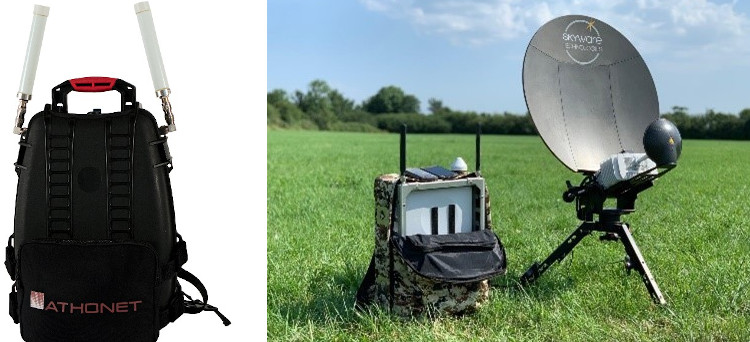|
The portable and compact private mobile network is deployed to provide local 4G-5G communications in isolated areas, with the possibility of connecting via backhaul links (e.g., satellite) to national infrastructures for extending the national coverage, for instance, of special forces of the Ministry of Defense/Intern. The small form factor of the backpack solution includes a small radio cell, a ruggedized small server with a fully virtualized core network and optionally applications to run by the end users (e.g., Push-To-Talk, Mission-Critical PTT). The end users can be equipped with commercial or ruggedized phones, tabs, PCs, wearable or any other kind of devices/machines that can be equipped with a SIM to be provisioned in the local mobile network. This grants also secure communications among the users in a local group as only the SIMs provisioned in the backpack can be authorized to get access and connect to the network and its services. When provisioning the SIM, it is also possible to set the Quality of Service (QoS) profile of such user, i.e., allowing users to run services or applications that can be prioritized over best effort data traffic. This is the case of Voice over LTE (VoLTE) and MCPTT/MCX, which have 3GPP standard specific QoS Class Identifier (QCI) dedicated to grant traffic priority from the UE to the Radio and Core, i.e., over the full e-2-e chain, when needed. The full classification of such QCI values in the standards are collected under the technical specification 3GPP TS 23.203 "Policy and Charging Control Architecture". |
|
|
Joomla 3 Templates by RSJoomla!

